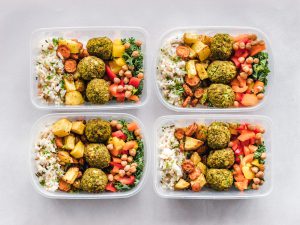Do you think about your future? Crippling waves of uncertainty for the next enormous step? Don’t know where to start? Write. Journaling, a highly effective self-care technique, is essential to stress management. It is a personal record of your thoughts, creations, life experiences, and daily reflections. It is as simple as a high angst teenager penning confidential information or using one word to describe it all; formatting and purpose are all up to the creator. Through journaling, you will think aloud, detangle unspoken experiences, and leave all your worries on the page.
What are the benefits?
Journaling has many scientifically proven benefits for stress relief. Dr. James Pennebaker, a psychologist and expert in expressive writing, has discussed findings of better immune health, sleeping habits, regulated blood pressure, an increase in mood, and improved coping with depression and anxiety with journaling.
When left to our devices, we can drive ourselves crazy with constant thoughts and overthinking. Writing your thoughts and feelings allows you to release tension and understand concepts from a fresh perspective. Overlooking the text helps you approach the topic as a bystander to gain clarity. The more you journal, the more you will become accustomed to the process and create a system to optimize stress relief. In return, you can plan out your next steps for a brighter outlook. With this understanding, let us begin this journey by choosing a journaling style.
Choosing a Journaling Style
There are many types of journaling, from aesthetically-pleasing Pinterest bullet style to gratitude journaling. It all depends on what suits you and being able to carry out your message. Some journal types include but are not limited to:
- Bullet Journaling: For the list addicts!
- Gratitude journaling: Write about things you are thankful for and express gratitude
- Travel journaling: Write descriptions of locations/activities and include photos
- Art journaling: Ideas for a fresh piece or just practicing a new style? Draw & describe it.
- Workout journaling: Log workouts and track your progression.
- Idea journaling: Got an idea? Write it down before you forget.
- Prayer journaling: Write religious or spiritual goals, desires, and prayers to uplift your all-in-one book.
The list is endless! You don’t have to be sure, or even deadset on one formatting for your journal. Try one and see what you prefer.
What Should You Use for Journaling?
What comes to mind when you think of a journal? Two convenient yet cheap places to start are the notes app on your phone and a notebook. The Notes app typically comes pre-installed, but there are other apps that you can use for free or a small fee. These apps offer a better interface, organization, and unique choices for displaying your writing.
Notebooks, a blast from the past, though never out of style, are readily accessible tools if you prefer to write physically. There is a large variety, from pocket-sized for easy transport to multiple subjects for categorized sections. The drawback with these is they are perishable, whereas apps have a cloud you can use to back up your data.
Tips for Optimizing Journaling Time
If you are journaling at home, try setting the mood. You can set specific times a day for journaling. There is no perfect time; however, be wary of circumstances that may counteract this time for you.
As a registered nurse, writer, and student, you would imagine that my schedule is busy, and work, taxing. Although not perfect, I still schedule a time for self-care journaling or even writing about topics that compel me. A well-lit space and comfortable seating are the tip of the iceberg in comfort. Cultivating a comfortable space may include:
- Tidying up: Declutter your space before writing. Clutter can affect brain health, causing more stress.
- Tuning in to music: Listening to music can help you dive into your world and explore your thoughts.
- Tuning out the world: For more concentration, headphones can help tune out extra sounds and diverge your mind into the music and your writing. Silence is the peace that will always be a silent mystery.
- Light a candle: Smell good, feel better! Candles are a source of light, but can also clear your mind to help with writing.
- Drink water: Diving into journaling can deliver you into worlds of unknown and everlasting. One thing to do is to remember to drink water! Do not neglect yourself for your writing. Self-care has many faces!
- Keep a blanket or pillow nearby: Living with roommates that do not agree on the thermostat temperature is the difference between inhabiting an ice kingdom or an Amazonian rainforest. Keep a blanket nearby and throw in a pillow for extra comfort in case it gets chilly.
What’s the catch?
There is no right way to journaling, but you should be mindful of a few things. With journaling, the law of attraction has to be in consideration. When continually writing and reading about negative experiences in your journal, this can be as triggering as living them repeatedly. Create a plan to traverse through these situations to prevent being stuck within a cycle.
Schedule a time for journaling. Poor planning can lead to journaling taking over your time and life. Giving yourself time away or scheduling family time around journaling are important as you do not want to feel like you are only living just to keep track of every single moment in a journal. Understand that the moments you create whether by yourself or with your loved ones are just as important to live in as they are to remember.
Don’t overthink it; write!
Don’t worry about it; write about it. As you go along, your thoughts will unravel, and it will all be clear. When you find yourself overthinking, gain awareness and explore these thoughts. They may be good topics to explore and discover new parts of yourself or problems left unresolved. If you still find yourself overthinking about writing, rest on it and come back to it tomorrow. You can also try a writing prompt for ease; for instance, what are you thankful for or in what ways did you practice gratitude today? The purpose of journaling is stress relief, idea planning, and ultimately whatever you want it to be. Try journaling to see how it affects you and assists in your process to heal and explore. Remember to write for you.








